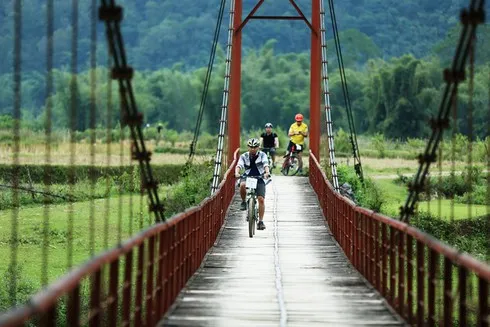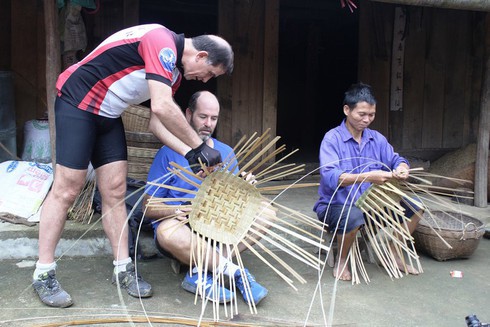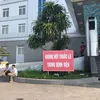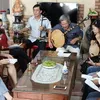Cao Bang promotes tourism development

To fully tap the local potential, the province has outlined a plan to connect border traffic with tourist destinations.
Under the plan, local transportation infrastructure will be upgraded to facilitate tourists to Cao Bang. Life-line routes linking border crossings and key tourist areas will be improved to shorten travel time. Roads running through 8 districts in the province: Thach An, Phuc Hoa, Ha Lang, Trung Khanh, Tra Linh, Ha Quang, Hoa An, and Nguyen Binh, will be upgraded and expanded at a cost of approximately 95 million USD.
Construction paid by public investment will be carried out from now until 2025 paid with priorities given to routes connecting Cao Bang’s most famous tourist destinations - Ban Gioc waterfall, Nguom Ngao cave, Nguom Puc cave, the special national historical relic sites of Pac Bo cave and Tran Hung Dao forest, and Non Nuoc Cao Bang Geopark.
Nguyen Trung Thao, Deputy Chairman of the provincial People’s Committee, said “Cao Bang has adopted policies and mechanisms to attract investors focusing focus on land clearance and human resource training. The province has also promoted incentives on taxes, land use, and credit."
"We have already attracted a number of large enterprises like FLC Group, Sungroup, and TNG Holding Vietnam, who have invested more than 1.4 million USD. TH True Milk Group is pouring 185 million USD into a project to develop smart agriculture, raise dairy cows, and process milk using high-tech. We are helping TH True Milk Group in land clearance and other business matters”, said Thao.
The number of tourists visiting Cao Bang has been on the rise since Non Nuoc Cao Bang was recognized by UNESCO as a global geo-park.
Thao said upgrading transportation will help localities in the province realize development targets, strengthen consolidate security and defense, and reduce costs.
“In addition to communications, we have invested in improving transportation infrastructure using the provincial budget. We have proposed a project to build a highway linking Dong Dang in Lang Son province with Tra Linh in Cao Bang, which has been supported by the Government and ministries", Thao added.
"This will be a breakthrough for Cao Bang tourism. To attract investors, we need to re-plan potential areas, invest in infrastructure such as accommodations for tourists, create signature products, and continue to implement a cooperation agreement to conserve and exploit tourism resources like Ban Gioc waterfall on the border between Vietnam and China,” Thao explained.

The recognition of Non Nuoc Cao Bang as a global geo-park last April raised the province’s tourism potential. Cao Bang has received UNESCO’s advice on conserving the province’s natural landscapes and geological heritage.
Sam Viet An, Director of the provincial Culture, Sports, and Tourism Department, said the provincial administration has asked localities within the geo-park to raise ethnic people’s awareness of developing the economy and tourism, attracting investment, and protecting their cultural heritage.
He said “We have 3 main tour routes in the geo-park - to the East, North and West. We have trained the locals on community-based tourism services. Successful models include the homestay model in Khuoi Ky ancient stone village, Kolia eco-tourism, and tours of revolutionary historical sites like Tran Hung Dao Forest, the Pac Po relic site, and rock caves. Good restaurants and famous craft villages have been chosen as partners of the geo-park. Cao Bang has beautiful mountain roads for adventure motorbike tourism.”
Cao Bang has promoted its tourism via newspapers, magazines, websites, and social networks, and has coordinated with the global geo-park network to participate in international tourism fairs, conferences, seminars, and exhibitions to introduce its specialties and image to the world.





